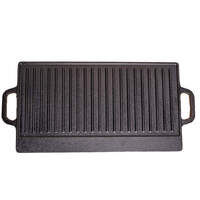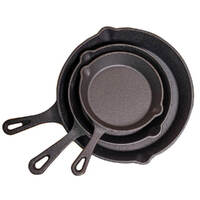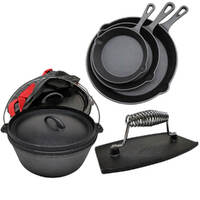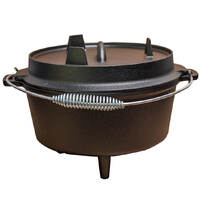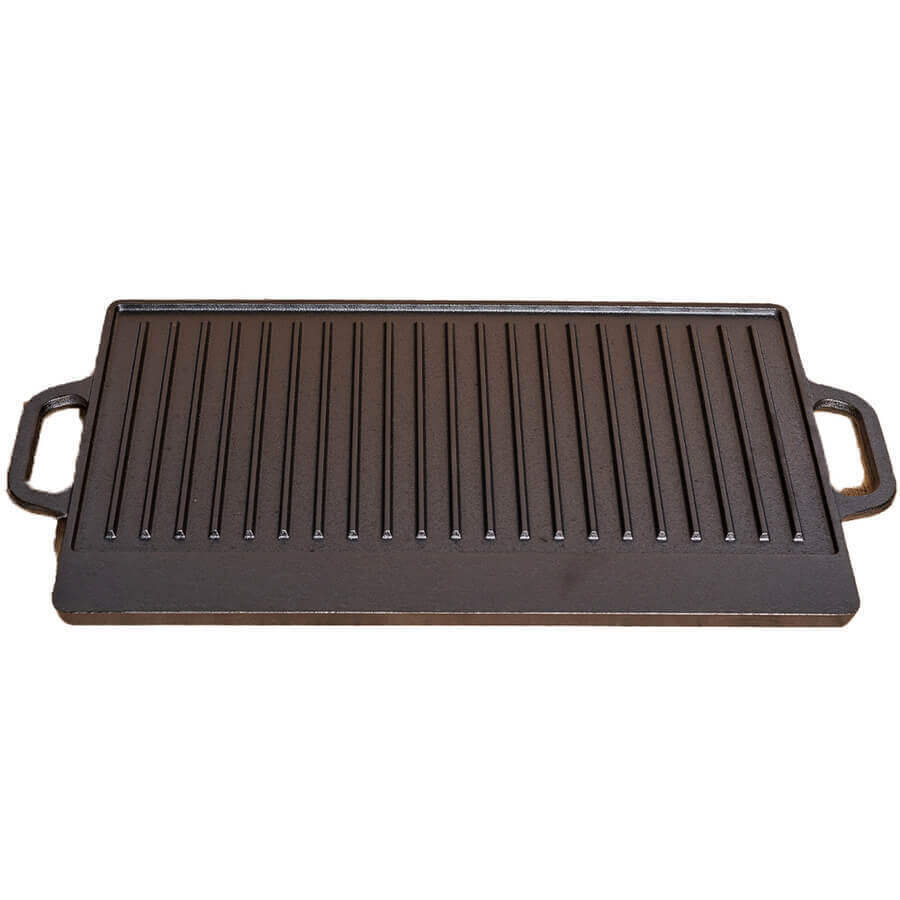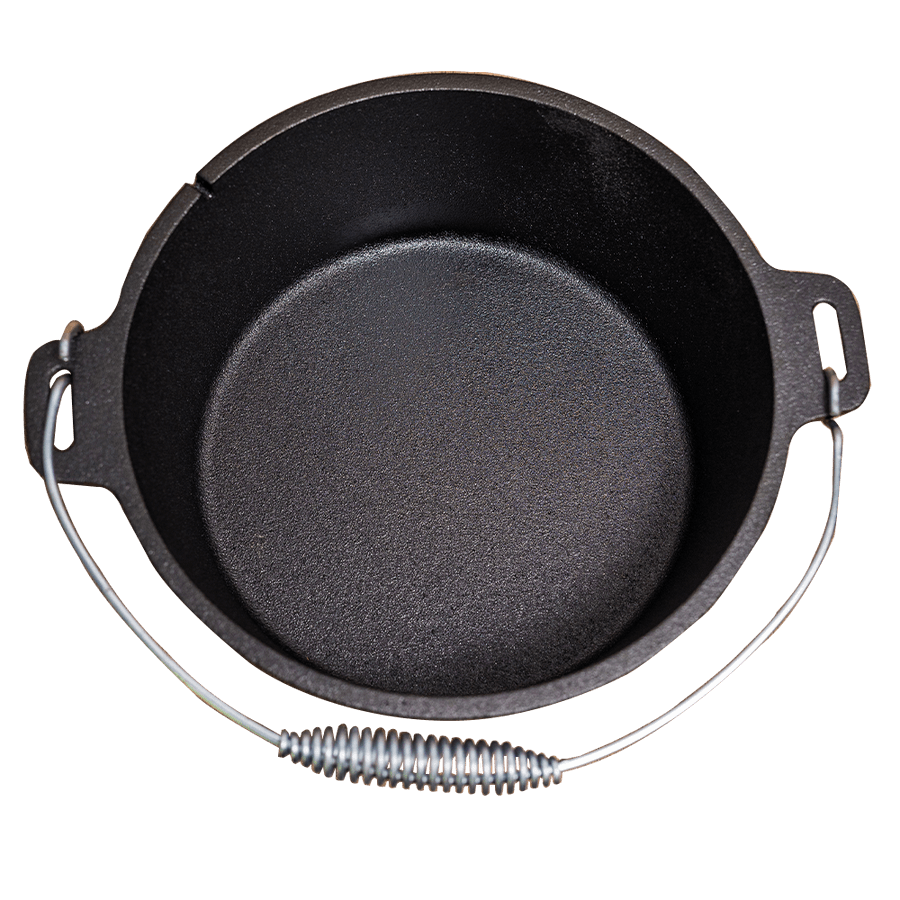Cast Iron Cookware: The Pros, The Cons, and Everything You Need to Know
.jpg)
Cast iron cookware is a type of kitchenware that has been in use for centuries. It is made of cast iron, which is a durable and long-lasting material that can withstand high temperatures. In this blog post, we will discuss the pros, cons, and everything else you need to know about cast iron cookware.
I. Introduction
Cast iron cookware is a type of kitchenware that has been used for hundreds of years. It is known for its durability, heat retention, and even heating. Cast iron cookware is versatile and can be used for a variety of cooking methods, including frying, baking, and roasting.
II. Pros of Cast Iron Cookware
A. Durability and Longevity
Cast iron cookware is incredibly durable and can last for decades if properly cared for. It is resistant to chipping, cracking, and scratching.
B. Even Heating and Heat Retention
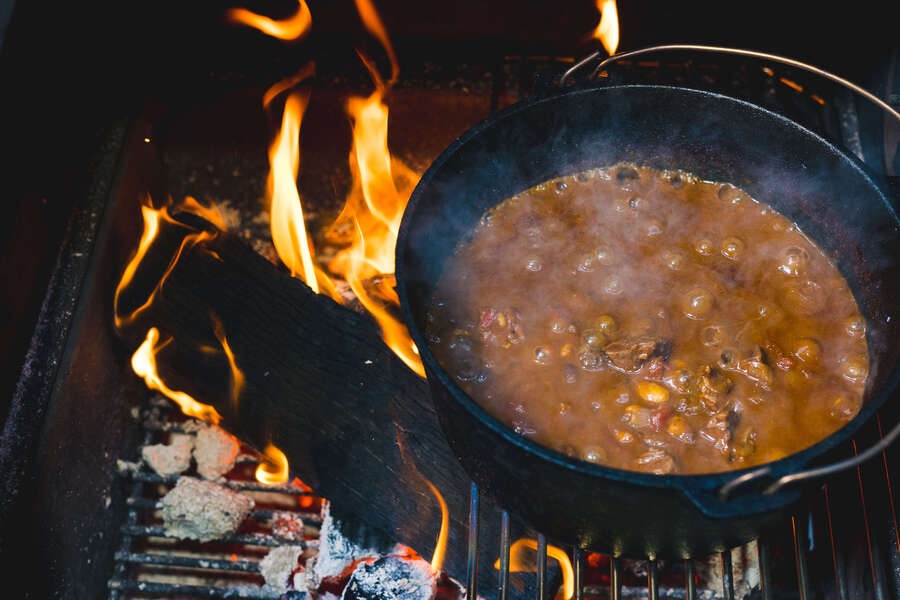
Cast iron cookware heats evenly and retains heat well. This means that food cooks evenly and stays warm for longer periods.
C. Non-toxic and Chemical Free
Cast iron cookware is a healthy cooking option because it is non-toxic and chemical-free. It does not contain the harmful chemicals that are found in many non-stick pans.
D. Versatility
Cast iron cookware can be used on a variety of cooking surfaces, including gas, electric, and induction. It can also be used for a variety of cooking methods, including frying, baking, and roasting.
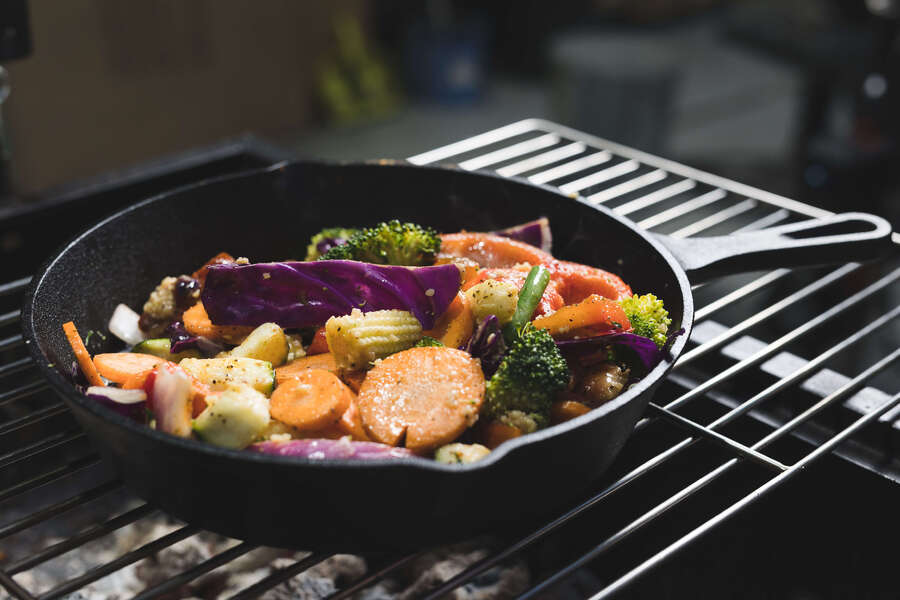
E. Added Nutritional Value
Cooking with cast iron cookware can add nutritional value to your food. It releases small amounts of iron into your food, which can be beneficial for people with iron deficiencies.
III. Cons of Cast Iron Cookware
A. Heavy Weight.jpg)
Cast iron cookware is heavy and can be difficult to handle, especially for people with arthritis or other hand conditions.
B. Prone to Rusting and Sticking
Cast iron cookware can rust if not properly cared for, and food can stick to the surface if not seasoned correctly.
C. Requires Special Care and Maintenance
Cast iron cookware requires special care and maintenance to keep it in good condition. This includes seasoning, cleaning, and storing the cookware properly.
D. Not Suitable for Certain Types of Cooking
Cast iron cookware is not suitable for cooking acidic foods, such as tomatoes or citrus, as it can react with the acid and affect the taste of the food.
IV. Everything Else You Need to Know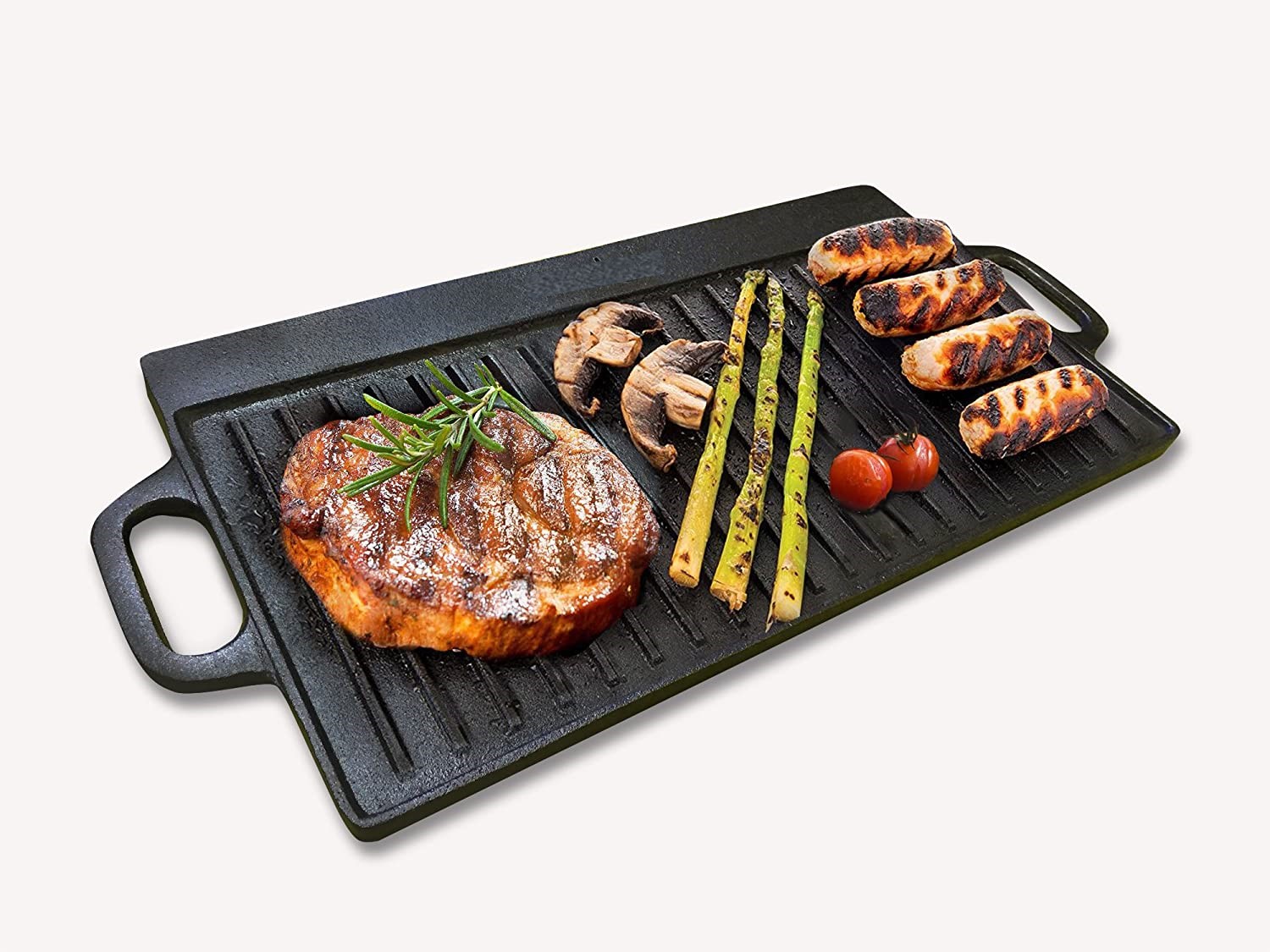
A. How to Season Cast Iron Cookware
To season cast iron cookware, rub a small amount of oil into the surface of the cookware and bake it in the oven at a high temperature for about an hour.
B. How to Clean and Care for Cast Iron Cookware
To clean cast iron cookware, use a soft sponge or brush and avoid using soap. Dry the cookware thoroughly after cleaning and rub a small amount of oil on the surface to prevent rusting.
C. Different Types of Cast Iron Cookware
There are several types of cast iron cookware, including skillets, Dutch ovens, griddles, and grill pans.
D. Tips for Cooking with Cast Iron Cookware
When cooking with cast iron cookware, preheat the cookware before adding the food, use a lower heat setting, and avoid using metal utensils that can scratch the surface.
V. Conclusion
Cast iron cookware has many pros and cons. It is durable, versatile, and healthy, but it requires special care and maintenance. If you are considering purchasing cast iron cookware, make sure you understand the pros and cons and how to properly care for the cookware. With the right care.
Check out our range of Cast Iron Cookware
Check out our Recipe
.png)
by: Michael Wilkie

